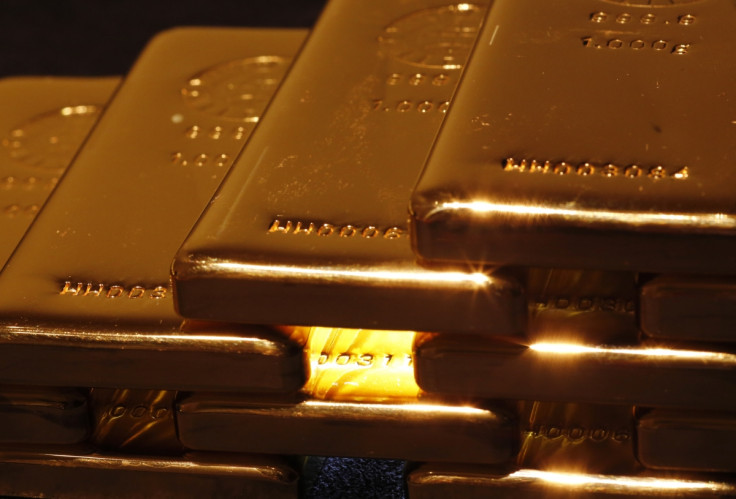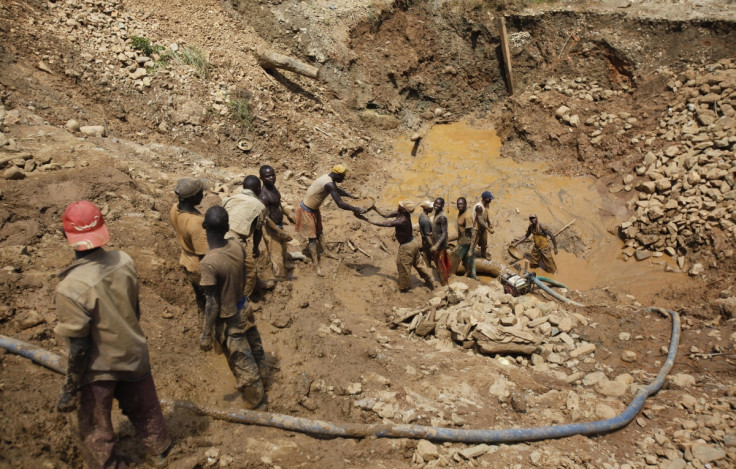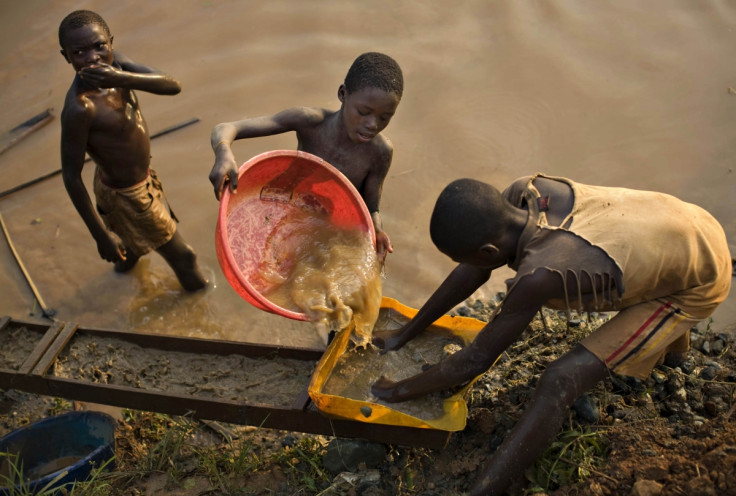British Millionaire Jonathan Graff Bought £24m of DR Congo Blood Gold, Says UN

A British gold dealer accused of buying £24m worth of "blood gold" originating from the Democratic Republic of Congo has escaped UN sanctions.
Jonathan Graff is said to have bought the gold from a dealer in Uganda who was linked to the Front de Nationalistes et Integrationnistes. The group, a Lendu rebel group active in the Ituri conflict in the DRC, is believed to have bought weapons with the money.
The United Nations Security Council investigating the case recommended that Graff and his companies Hussar Ltd and Hussar Services Ltd should be placed under sanctions. It has been revealed, however, that the sanctions were not imposed after objections by the British government.
According to prosecutors, Graff, 62, used his companies to transfer the gold to refiners before selling it on to the world market.
Argor-Heraeus, a privately owned company, refined three tons of gold ore allegedly provided by Graff's businesses. The refinery company is currently under investigation in Switzerland. The Swiss federal prosecutor's office said the company was being probed "for suspected money laundering in connection with a war crime and complicity in war crimes".

Investigators gave the Metropolitan Police a file of evidence concerning Graff.
In court in January 2005, it was stated that "one of the key importers of gold from Kampala is the Hussar company". However, the British government opposed sanctions.
WikiLeaks disclosed a diplomatic cable which revealed that the Foreign Office said that Hussar's trade with Uganda accounted for a very small part of the firm's business.
A spokesperson for the Foreign Office said that it had not supported the sanctions because Hussar had already ceased trading with the Ugandan supplier in 2005 and had stopped operating entirely by July 2006.
In its report, the Times said: "Argor-Heraeus said it 'firmly rejects the unjustified allegations'. Mr Graff could not be reached for comment."
What is blood gold?
Blood gold is the end result of illegal mining in areas of conflict in central Africa, notably the Democratic Republic of Congo. The miners work in extremely poor conditions and some are made to work at gunpoint.
In South Africa, some miners are forced to live underground in the deep mines for long periods of time and are nicknamed "ghost miners".

In the Congo, the March 23 Movement, also known as the Congolese Revolutionary Army, is still mining conflict gold. It is smuggled into Uganda and Burundi, where it is sold on to international buyers. Bosco Ntaganda, the alleged M23 leader, was wanted by the International Criminal Court for conscripting children under the age of 15 to fight before handing himself into the US Embassy in Rwanda in March 2013.
Blood gold is indistinguishable from "clean gold" because refiners take the metal from multiple sources, which makes it difficult to track. Refining companies have been criticised for having concerns over the quality of the gold, rather than its brutal origin.
The relatively lawless gold flow in DR Congo is said to be worth around $500m a year. In the US, the Dodd-Frank Act requires businesses to account for the origin of minerals they buy to ensure that they do not come from African warzones. However, the portability of gold makes it easy to smuggle to other countries.
© Copyright IBTimes 2025. All rights reserved.






















